(Gering NE)
Scotts Bluff National Monument lies along the North Platte River, and rises 500ft above the surrounding landscape. It was an important waypoint for natives, trappers, supply wagons, the Pony Express, and emigrants moving west. The bluff could be seen across the prairie for days before reaching it.
Emigrants using the Oregon, California, and Mormon Trails knew the bluff marked the completion of 1/3rd of their westward journey. And, signaled the approach to the Rocky Mountains. It also had water, and supplies for moving ahead.
After seeing the film at the Visitor Center, I drove to the top of the bluff. Two trails provided views of the rocky top, and the surrounding landscape. There was a rattlesnake resting by the trail which stopped hikers. Others refused to pass; I just walked a wide berth around the noisy critter.
From the bluff I could see Wildcat Hills in the distance. I had hoped to camp there, but alas, the gate to the dispersed camping area was locked when I arrived. So, I continued driving south and discovered a very nice campground on a reservoir.
Only a few campers shared the nice view of the lake with trees and geese. Widely spaced spots with easy level, picnic table, fire-ring, pit toilets, and good internet. Pretty nice; and it was all free!
Camp: Oliver Reservoir SRA – drycamp
Scene: Historic landmark on emigrant trails
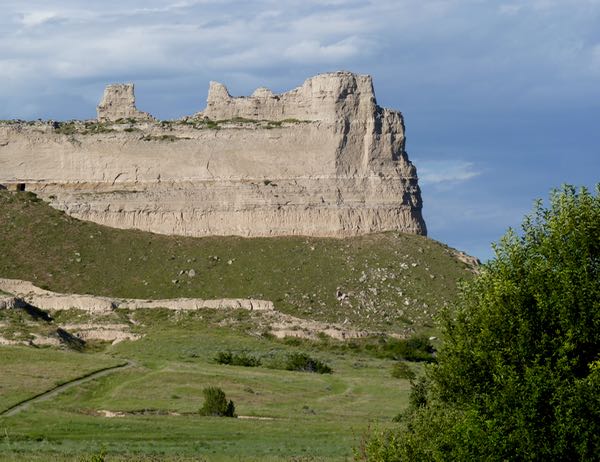
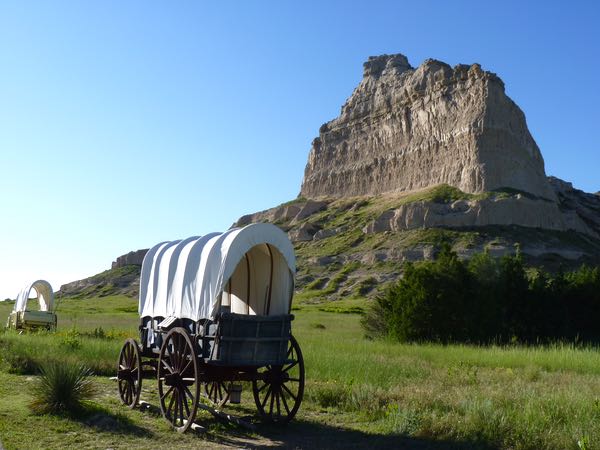
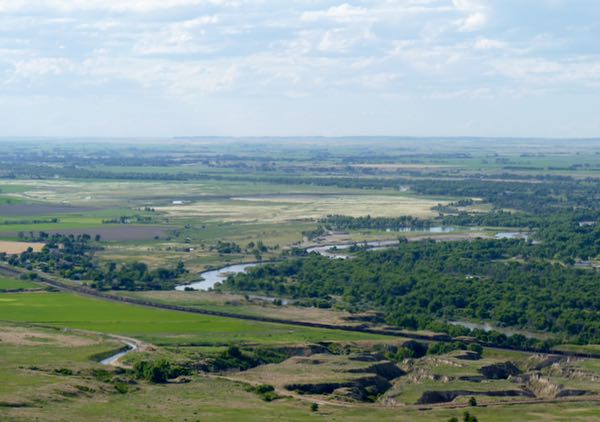
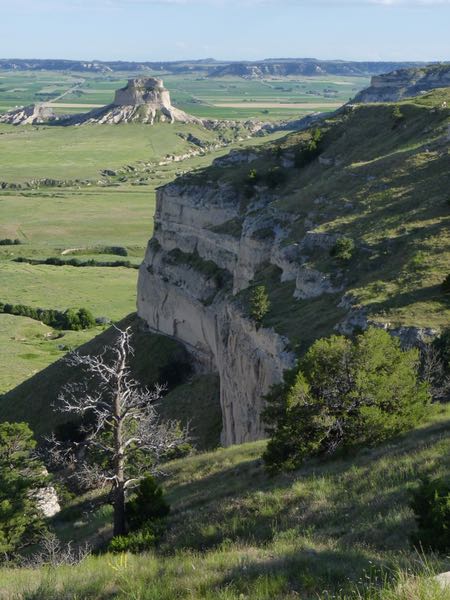
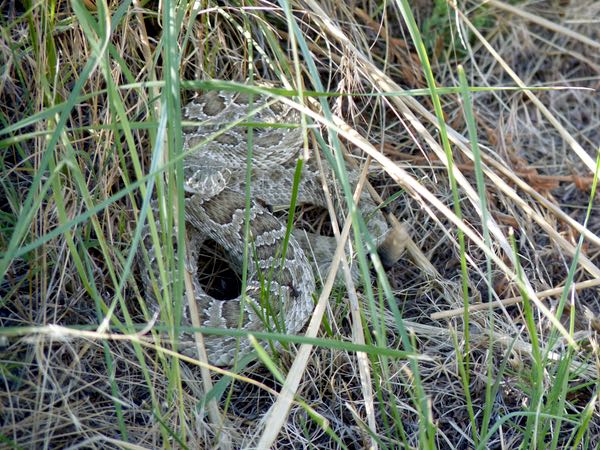
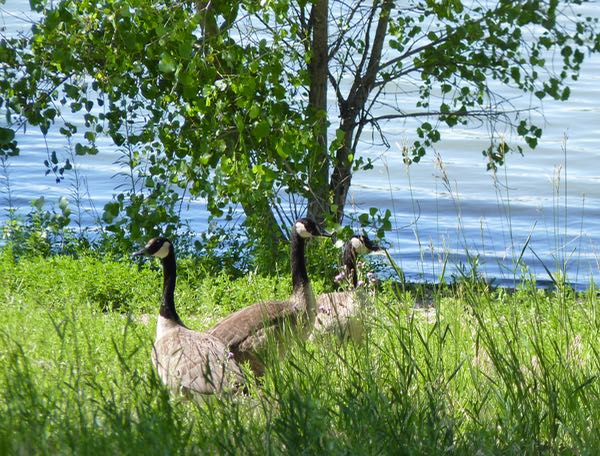
Beautiful photos and a mini-history lesson as usual! Love the part about the rattlesnake. Question for you though. It seems that you’re always on the move. Do you not enjoy extended downtime at any one location? Just curious is all.
I like to stay on the move seeing new and exciting places. After 2 or 3 days I get antsy to get on down the road. The most I’ve stayed put is 2 weeks; and that usually happens in the winter.
It’s almost unheard of to find a campground that is free AND has internet. I’ve been to some National Forest CG’s that are free, but not many these days.
For most regular campgrounds you are probably correct about the internet. However, I rarely stay in those places; preferring boondocking, forest and BLM camps. Surprisingly, very few places these days don’t have some internet. The exception is when I’m in really remote places.